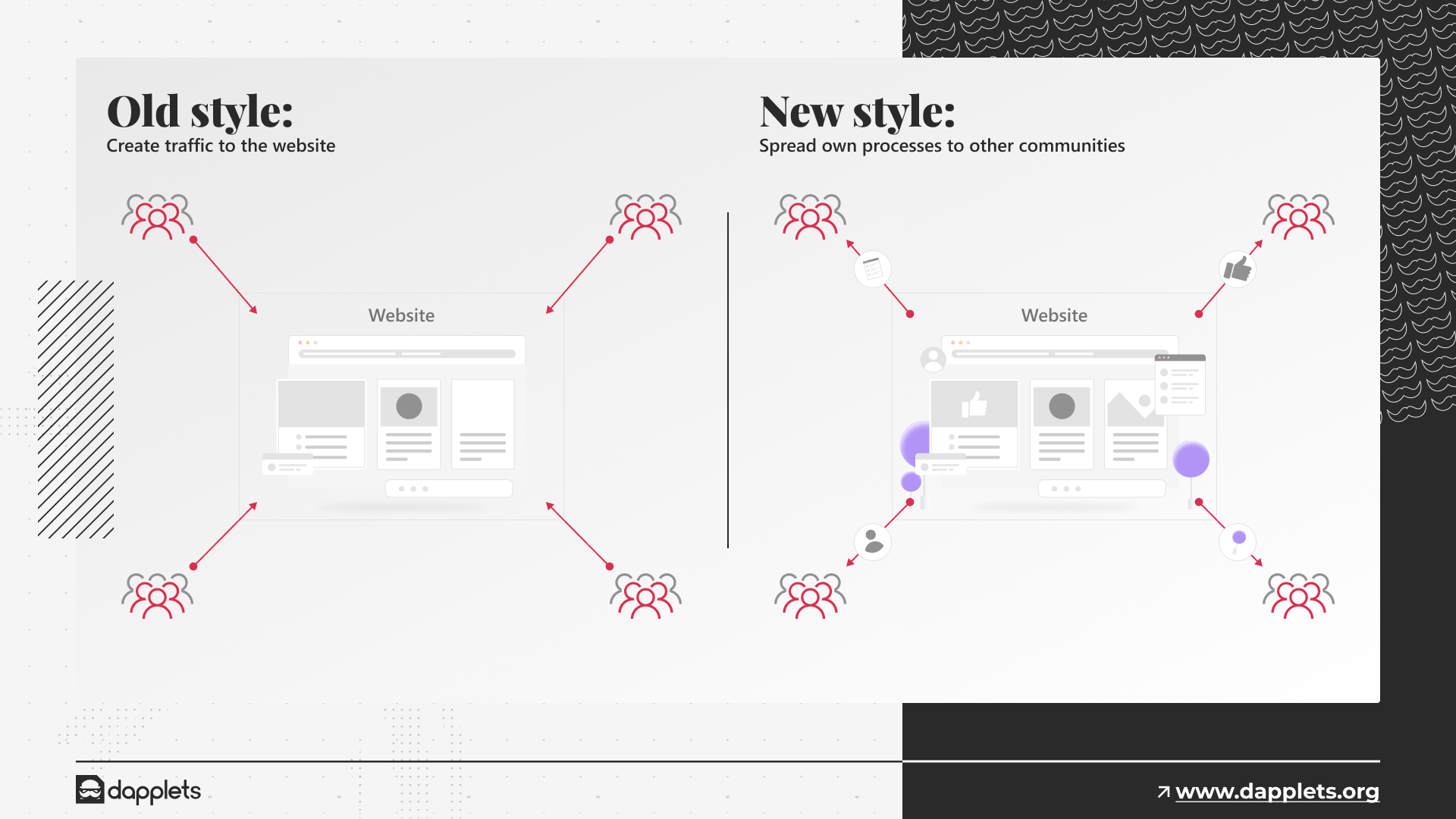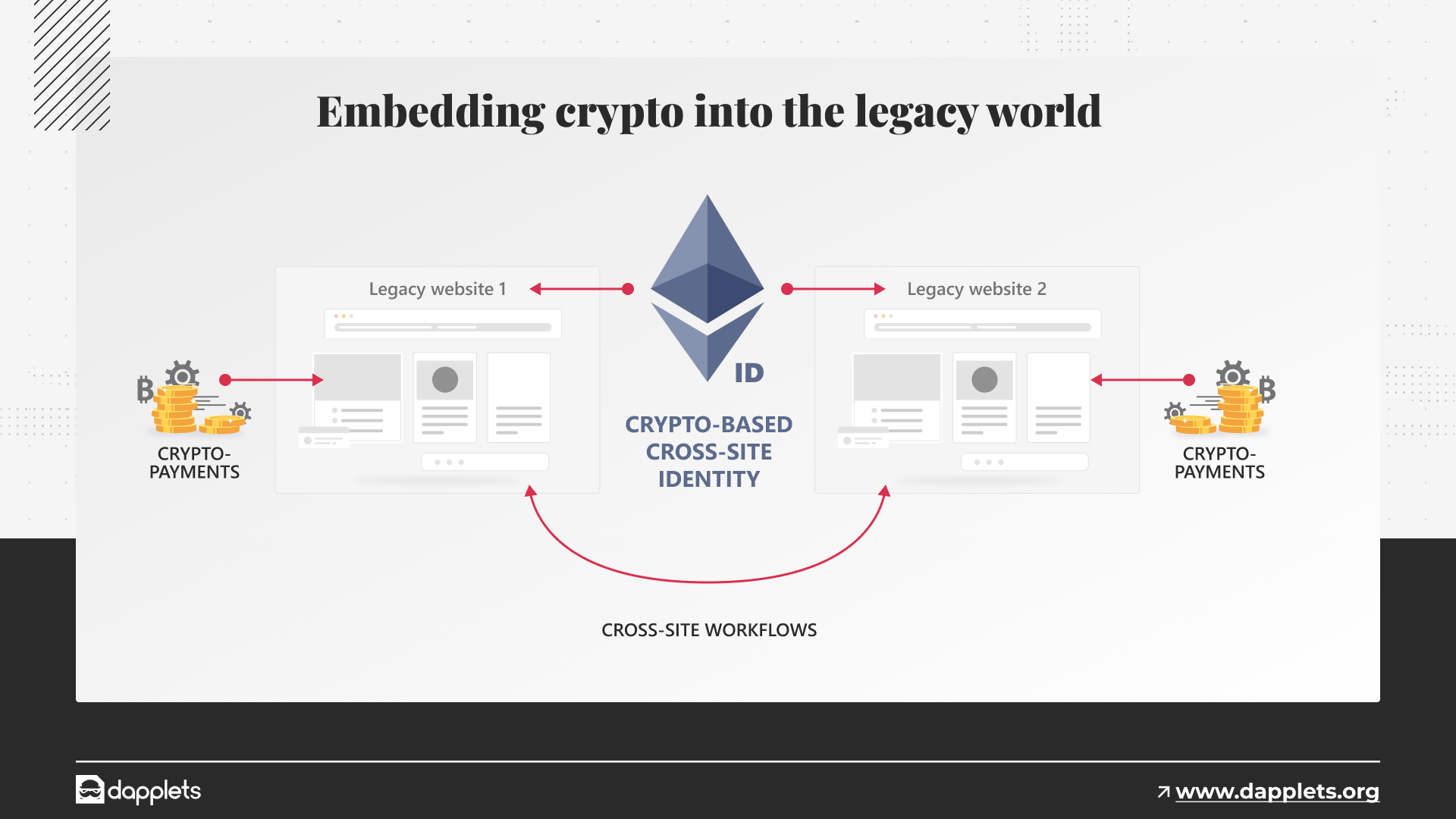Business Cases
Self-Sovereign Communities#
Although social platforms should only provide a technical service, usually they end up misusing their power to shape and manipulate communication inside сommunities. A community then experiences this as censoring posts and canceling accounts.
The way in which decentralization is usually applied now does not help. It makes the site owner even more powerful by enhancing his ability to perform censorship. This is because even though the infrastructure becomes decentralized, the owner’s role remains its central power.
The Augmented Web platform breaks this monopoly and begins a transition to a new web, where any centralized website owner becomes forcibly decentralized on the UX level.
This means that even if a provider (like any social network), misuses their power and restricts some content, accounts or operations, the community always remains in power to overcome these restrictions.
The UX decentralization layer can be applied on top of almost any website.#
As a result of this forced decentralization, the power of the website owner gets restricted to the services he provides. It becomes impossible for a centralized owner to take the community hostage and forcibly extract profits.
Because in case of any pressure or service disruptions, any community member can redirect the troubling workflow to another service provider.
The bigger the community, the more reasons for its self-sovereignty.#
We envision a world where communities become self-sovereign, even if they were created by a central actor. Like children who become independent of their parents when they grow up.
Embedded Business Processes#
The protocol offers new ways in marketing and allows new business cases on the legacy web. Instead of buying traffic on a website, the owner can embed his business processes into other communities.

There are many business cases which show that embedding your own business processes into third party communities is better than trying to bring the audience to your own website. Executing your business processes in a place where people have already established communities could be the better choice.
Commenting and content tagging, for example, is much more efficient in the original context than anywhere else.
It becomes possible to embed new services into legacy websites even if the website is not prepared to run them.

A good example could be any crypto-based services like payments or identity embedded on top of existing legacy websites, while the website owner does not necessarily have any knowledge about the integration.
Extend Existing Functionalities#
In addition to being self-sovereign, community members can also expand websites' functionalities and add new features to them.
For example:
Public Stickers - a dapplet that allows users to place stickers directly on public content
Total Comments - a universal dapplet that allows its users to annotate the content of any website
Tips & Donations - a dapplet that lets users send tips to content creators and contributors. This can work in different communities, different blockchains and tokens.
Avatar NFT Augmentations - clothes, accessories, gadgets and bodies for your Avatar. In the form of NFTs that can be bought, sold and traded.
Instant NFT Minting - a dapplet that allows its user to turn any content (e.g. a social media post) into an NFT.
Instant Message Encryption - a dapplet that can encrypt texts as they are being written. To retain privacy and protect users from message parsing by web crawlers.
Universal Chat - a dapplet with an online chat that’s displayed on top of any website. It allows users to have direct discussions anywhere within the content’s framework.
Site Reviews - a dapplet that provides independent and unstoppable site and project reviews, with undeletable comments, and ratings, all stored in blockchain.
Avatar Trolling - a dapplet that provides the opportunity to change other users' avatars and draw something on top.